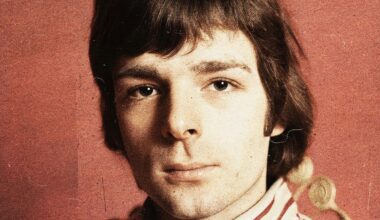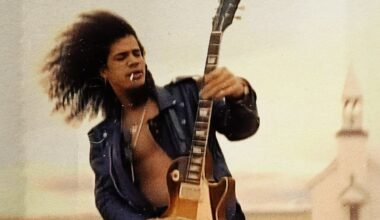Live Aid founder Bob Geldof has challenged the portrayal of Queen’s performance at the historic 1985 benefit concert. He claims that David Bowie was actually the most impactful performer of the day, according to The New York Times.
Geldof’s comments specifically addressed the depiction in Queen’s biographical film “Bohemian Rhapsody.” He revealed what he considers the true turning point of the Live Aid concert.
“The movie (Queen’s biopic ‘Bohemian Rhapsody’) isn’t right,” Geldof said. “Queen were completely, utterly brilliant. But the telephone lines collapsed after David Bowie performed.”
The Live Aid founder went on to describe Bowie’s emotional response and decisive action during the concert.
“David was crying and said he would cut a song from his set to show the CBC (about Ethiopia) report instead,” he continued. “It’s an extraordinary moment during the concert, because at the end of ‘Heroes,’ which the crowd were all singing, he quietly introduces the clip and asks people to send their money in.”
Geldof emphasized the profound impact of Bowie’s performance and its significance to the fundraising effort.
“It was like a slap in the face,” he said. “Bowie brought the house down. That was the key moment.”
These revelations provide new perspective on one of the most significant charity concerts in music history. The event continues to influence humanitarian efforts decades later.
Old Vic Theatre reported that Live Aid was held simultaneously at Wembley Stadium in London and John F. Kennedy Stadium in Philadelphia on July 13, 1985. The concert attracted roughly 162,000 attendees across both venues. It was broadcast to an estimated 1.5 billion viewers worldwide, making it one of the largest satellite television broadcasts in history at that time.
The scale of the event was unprecedented for its era. EBSCO Research documented that the concert featured over 70 artists performing during a marathon 16-hour music event. The entire production was organized in just a few months, all dedicated to raising funds for famine relief in Ethiopia. The logistical achievement of coordinating performances across two continents while maintaining live television coverage represented a breakthrough in global entertainment production.
The financial impact of Live Aid extended far beyond the initial fundraising goals. Britannica noted that the concert raised over $245 million through ticket sales and donations. This success established a new model for celebrity-driven humanitarian campaigns. It demonstrated how entertainment could be leveraged to address global crises and bring sustained international attention to humanitarian issues.
Live Aid’s legacy continues to influence modern charity concerts and awareness campaigns. Philadelphia Magazine observed that the event permanently changed the role of music in humanitarian efforts. It set the standard for how entertainment figures could mobilize public support for global causes, inspiring countless similar initiatives in the decades that followed.






